
How would you feel if you had a visible disease of the skin?
Discover the immersive experience with our augmented reality filter, developed in collaboration with Perfect Corp.

Living with a visible disease of the skin on the face or hands means constant exposure to outside scrutiny, embarrassment and the sometimes disconcerting or even hurtful reactions of people you see every day, or those you just run into.
This kind of attention, however discreet, can have an unsuspected impact on the lives of people with a visible skin disease.
Let's be conscious of the power of a gaze: it can spoil someone's day, but it can brighten one up too!

Discover the immersive experience with our augmented reality filter, developed in collaboration with Perfect Corp.
It's this relationship with other people
that the Pierre Fabre Dermo-Cosmetics & Personal Care department dedicated to patient and consumer relations, wanted to explore.
A relationship that also involves the skin, and the way we look at someone's face or hands.
How ?
By taking a scientific "look" at the real psychological and social impacts that we don't always fully appreciate.
Through several international surveys based on a program called VDS (Visible Diseases of the Skin), carried out with the contribution of patient associations for eczema, acne, vitiligo, psoriasis and ichthyosis, for whom the "other's gaze" is a major and regular concern.
By offering an e-motion experience to better understand the feelings of someone with a visible disease of the skin, and to encourage the general public to change their way of seeing.

Emma's testimony
Let's take a look at these initiatives inspired by this appeal.
Let's open our eyes and ears and take this opportunity to change our way of seeing!
As part of the VDS program (Visible Diseases of the Skin), the department Pierre Fabre Dermo-Cosmetics & Personal Care dedicated to patient and consumer relations carries out international surveys with patients and the associations that represent them.
Carried out from 2020 to 2021, in collaboration with the company EMMA, this international survey assesses the prevalence (number of cases in a given population) and the impact of 8 visible skin diseases: acne, psoriasis, eczema, hand eczema, rosacea, ichthyosis, vitiligo and hidradenitis suppurativa or Verneuil's disease.
It mobilized 13,138 adult participants in 6 countries: Canada, China, Italy, Spain, Germany and France. All participants were invited to complete a structured and consolidated digital questionnaire that was created and consolidated with the involved patient associations.
26%
of respondents reported suffering from skin diseases
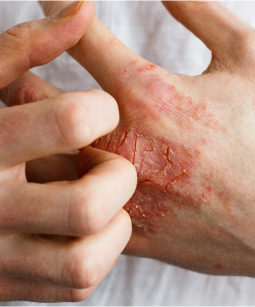
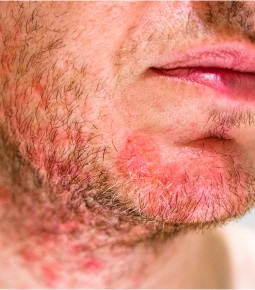
75%
of patients with a dermatoses reported that their skin disease was localized on the face and/or hands
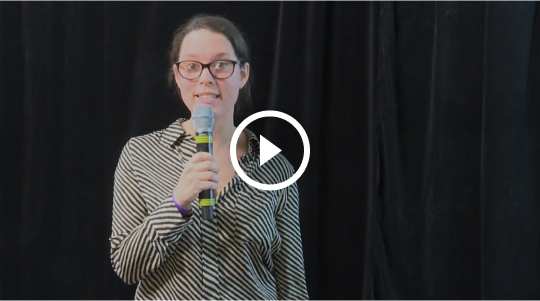
Press conference Results presentation
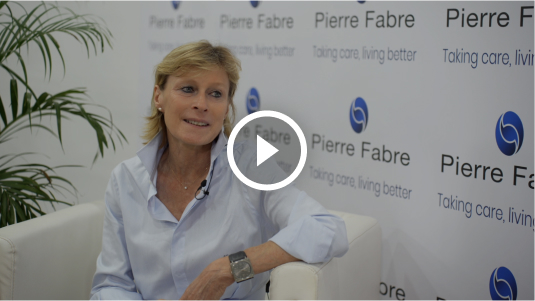
World Congress of Dermatology Pr. Marie-Aleth RICHARD (Dermatologist at Timone Hospital, Marseille, France)
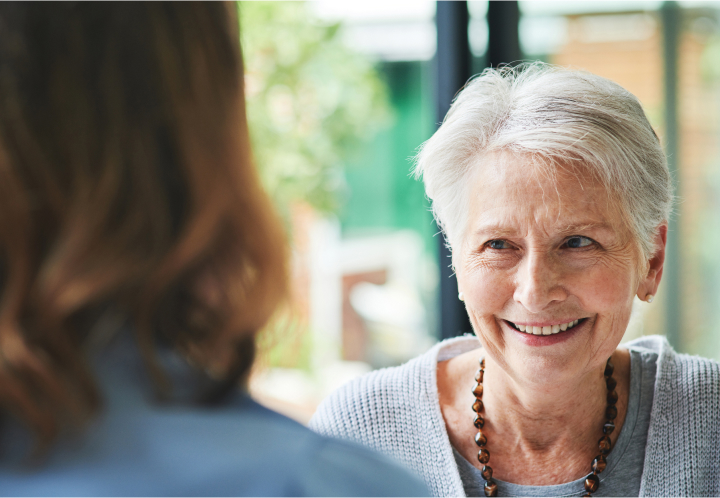
Among patients with a skin disease on the face and hands
62%
feel discouraged
47%
feel rejected by others
49%
feel people look at them with disgust
Among patients who reported localized dermatosis on the face
Among patients who reported localized dermatosis on hands
47%
reported trying to hide their dermatoses
34%
reported trying to hide their dermatoses
25%
considered it as an occupational disability
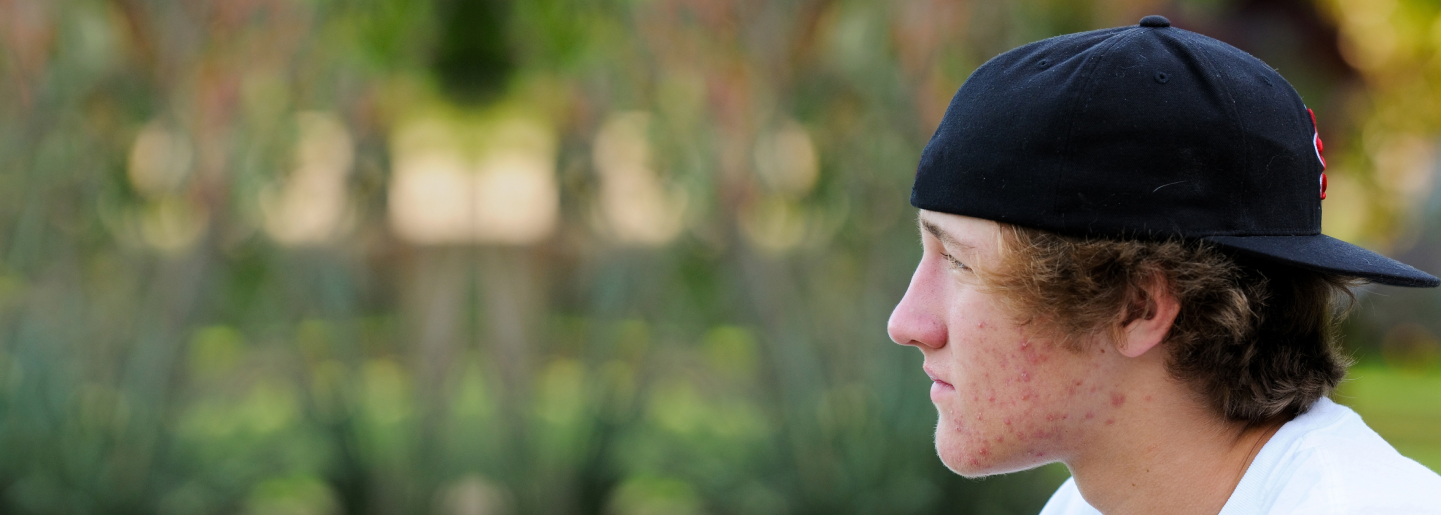
Skin diseases can be tough. Not only is there the way other people look at you, there's also the pain, both emotional and physical.
It's twice as hard!
What is rosacea?
Rosacea is a non-contagious disease of the skin localized on the face that can range from diffuse redness, to the appearance of fine blood vessels, through outbreaks of small white pimples. Those affected can experience real discomfort on a daily basis as the redness is most often concentrated on the nose, cheeks and chin.
What is acne?
Acne is a common, chronic, non-contagious skin disease. Its symptoms vary and include oily skin, blackheads and pimples. It is most common in teenagers but can affect adults too. Flare-ups are followed by calmer periods, depending on the season, the hormonal cycle and how well treatment is being followed for example. As with teenage acne, adult acne can have a significant psychological impact, affecting quality of life and self-esteem as it can have a negative effect on body image at key periods in life, and as it affects both the body and the face.
What is vitiligo?
Vitiligo is an autoimmune, non-contagious disease. This marked skin disease can be difficult to live with due to the appearance of depigmentation of the skin and sometimes of the hair and that could be more or less extensive and more or less intense . If all areas of the body can be affected, the face, hands and feet, joints and genitals are the most affected.
What is ichthyosis?
Ichthyosis is a rare genetic disease mainly affecting the skin. There are several forms and the severity varies. It is characterized by extremely dry, rough skin and by an excessive amount of “dead skin dandruff” (skin flakes) that continuously peels off. The skin is more or less inflamed (red), more or less thick, with sometimes cracks (frequently under the feet) and/or painful bubbles. The skin is subject to surinfections and may have an unpleasant odor. The eyes are fragile, often irritated and red, especially in case of ectropion (eversion of the eyelids). This visible disease of the skin is often present at birth and has a major impact on the patients quality of life.
What is atopic eczema (or atopic dermatitis)?
Atopic eczema, also called atopic dermatitis, is a chronic, non-contagious inflammatory skin disease caused by skin hypersensitivity that is often hereditary. It is characterized by alternating periods of flare-ups and remissions. The duration, intensity and location of symptoms vary. The main symptoms of an inflammatory flare-up, occurring without any obvious cause, are red patches always accompanied by itching, possibly swollen (oedema), oozing, covered with small vesicles, resulting in crusts, thickening of the skin and lesions scratching. During remission, the skin remains dry and may itch. Atopic eczema appears in childhood and usually disappears in adulthood. In babies, atopic eczema affects the fleshy areas (cheeks, forehead), arms and the belly. In children and adolescents, it appears in the fold of the elbows and knees as well as on hands and face (around the mouth, eyelids, behind the ears). In the majority of cases, atopic eczema tends to disappear in adolescence but if it has not disappeared in adulthood, you can find patches everywhere, especially on the face, neck and hands.
What is psoriasis?
Psoriasis is a common, inflammatory, chronic, non-contagious skin disease affecting people of all ages. During flare-ups, the skin is covered with uncomfortable, itchy plaques of varying size, which are red or covered with a thick, whitish layer known as scales (skin flakes). Psoriasis includes a genetic predisposition that sometimes triggered by specific environmental factors (stress, climate, medication, alcohol or tobacco consumption, etc.). Psoriasis has both a physical and psychological impact due to the patients' own gaze and the way other people look at them.
What is Verneuil's disease?
Verneuil's disease, described by the surgeon of the same name and also known as hidradenitis suppurativa, is a non-contagious, chronic and recurrent skin disease, from as yet unknown causes. Periods of flare-ups and remissions follow one another. The flare-ups are permanent at the most severe stage. Symptoms: Painful lumps, abscesses, pus discharge, fistulas and raised scarring, most commonly located in the armpits, groin, breasts, gluteal and submammary folds, back of the neck, and back of the ears. The disease affects the areas of the body where the sweat-producing glands are present, that is to say essentially the large folds. It causes a lot of physical and psychological pain.

Podcast
Patients are increasingly sharing their feelings and emotions on social media.
This provides valuable information about the patient experience.
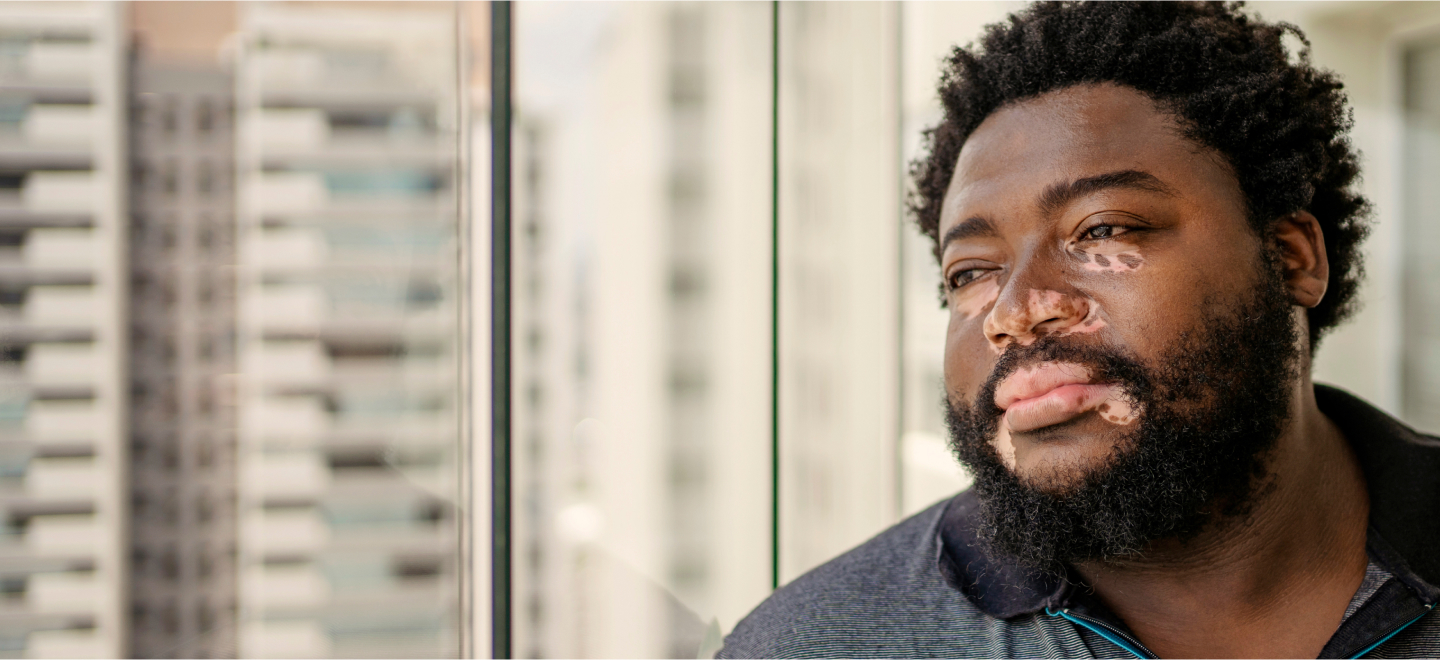
The world is changing, and so are the ways we communicate. Today, patients no longer express themselves solely in doctors' offices or with friends & family. Social media has opened up a new space, one that perhaps provides more freedom because of its virtual nature. This is even truer for people with skin diseases, for whom the visibility of their condition can be a barrier to communication. We now have access to these freely spoken words and draw on them for new insights that complement conventional studies, helping us better understand the burden of skin diseases and provide better solutions.
Carried out from January to April 2023, in collaboration with the company EMMA, this international survey assesses the prevalence (number of cases in a given population), the impacts, behaviors and needs of different skin types and skin diseases according to geographical areas, countries or skin tones.
It involved 50,552 adult participants (≥16 years old) in 20 countries (China, United States, Brazil, India, Australia, France, Italy, Canada, Denmark, Germany, Israel, Kenya, Mexico, Poland, Portugal, Senegal, South Africa, South Korea, Spain and the United Arab Emirates) spread over the 5 continents.
The study questionnaire, developed in partnership with patient associations and focused on their experience, covers 15 therapeutic areas in Dermatology and Oral Care (e.g. acne, psoriasis, rosacea, eczema, lentigo, skin, vitiligo, hair and nail care, wounds/healing, pain and pruritus, aesthetic procedures, oral care).
It represents the largest private database in dermo-cosmetics.

Among patients with a skin disease
19%
feel people look at them with disgust
20%
feel rejected by others
41%
give up taking selfies
34%
feel discouraged
42%
consider their skin disease to be a nuisance in their personal lives
38%
consider their skin disease to be a nuisance in their profesional lives

Discover this immersive experience thanks to our augmented reality filter, developed in collaboration with Perfect Corp: your face is covered with eczema or vitiligo.
This simulation allows non-affected people to step through the looking glass and, for just a few moments, see and feel what life can be like for those for whom this condition is a daily reality. After the experience, users are invited to share their emotions on the spot.
Sometimes we need a little help to put ourselves in someone else's shoes!

Warmly received by the general public
and healthcare professionals alike

Emma's testimony

Visible Diseases of the Skin : Press conference on Survey VDS Results

Pr Marie-Aleth RICHARD interview on VDS survey at the World Congress of Dermatology

Program Patient Centric Pierre Fabre VDS, page www.ways-of-seeing.skin et e-motion experience presented at the Global Beauty & Fashion Tech Forum (Paris)
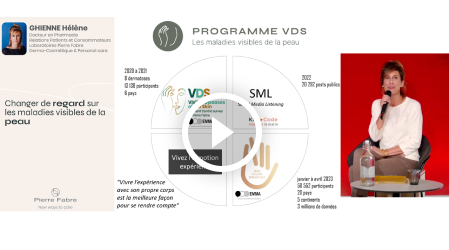
How to analyze the impact on patients' quality of life by listening to their words and feelings on social networks?

ALL - Vitiligo : Prevalence and consequences (Intervention Pr. Julien SENESCHAL, Dermatologist, Hospital Bordeaux, France)
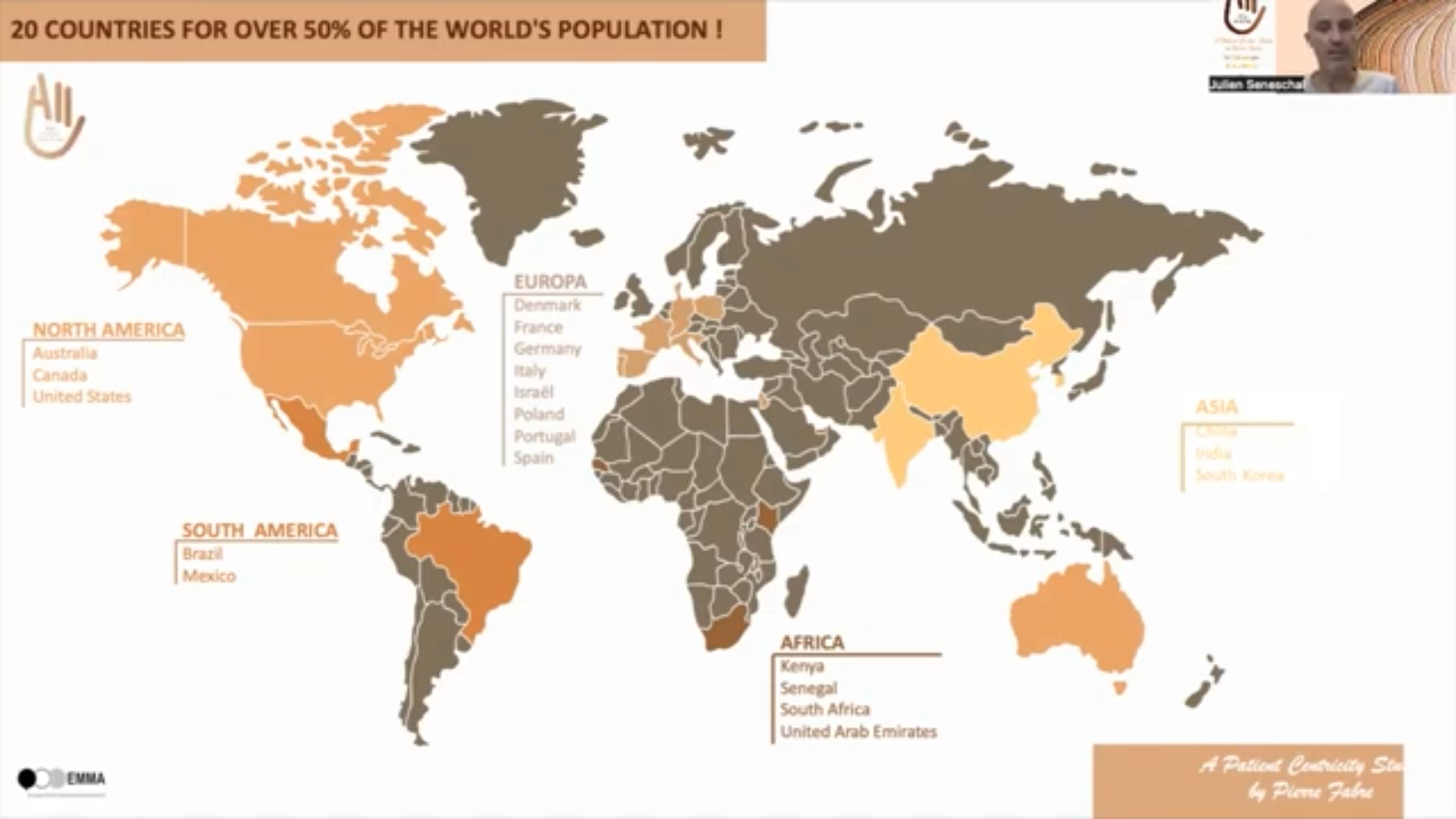
ALL - Vitiligo and sun exposure behaviour (Intervention Pr. Khaled EZZEDINE, Dermatologist, Hospital Henri-Mondor, Créteil, France)
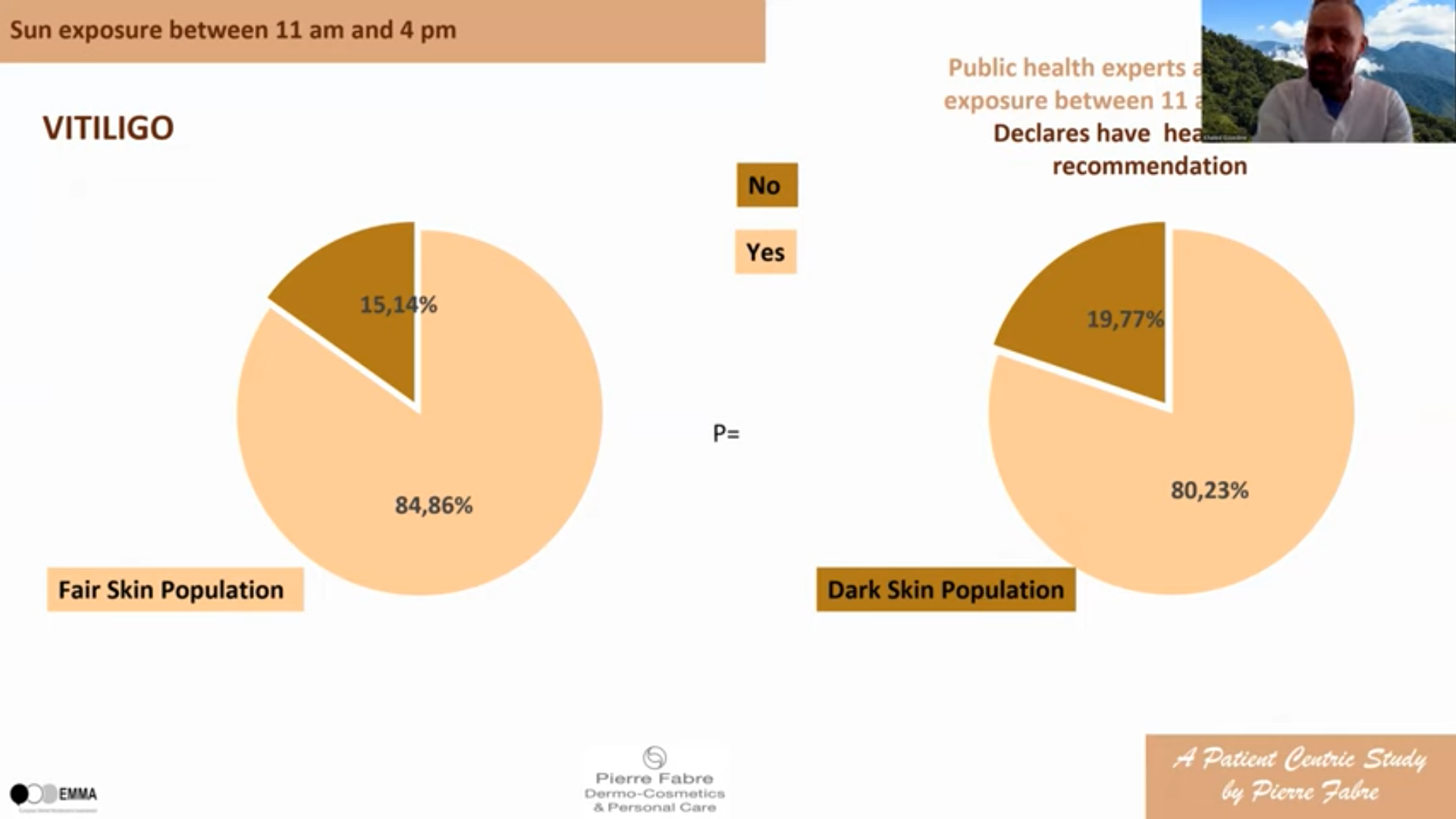
Survey ALL key figures
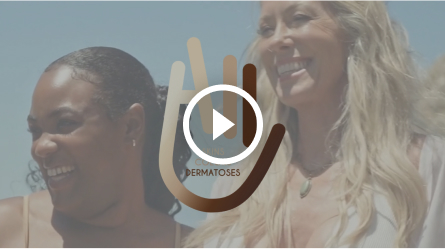
ALL - Acne (intervention Dr Markéta SAINT AMORAN (France) - EADV Berlin)
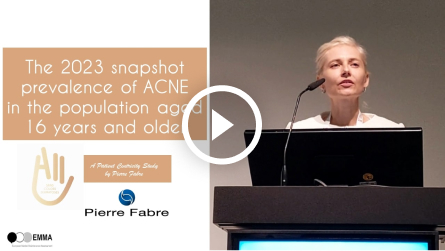
ALL - Worldwide Skin Diseases impacts overview 2023 (Dr Bruno HALIOUA (France) - EADV Berlin)
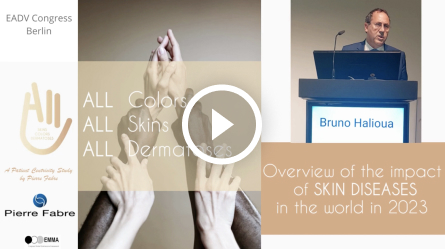
ALL - Scalp seborrheic dermatitis (intervention Pr Ramon GRIMALT (Spain) - EADV Berlin)
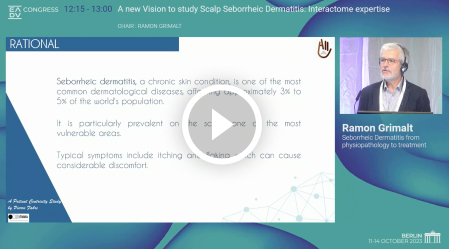
ALL - Interview Pr Ramon GRIMALT - Survey ALL - Scalp Seborrheic Dermatitis - EADV Berlin

ALL - Itch prevalence (Pr Gil YOSIPOVITCH (USA) - WCI Miami)
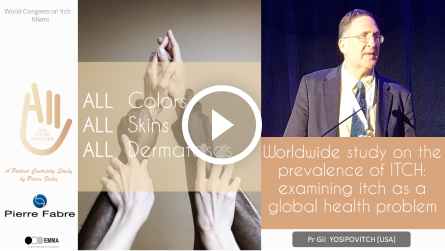
ICHTHYOSIS - Survey results presented by Pr Maya EL HACHEM, Head of the Pediatric Dermatology Department at Bambino Gesu Hospital in Rome (Italy)
Annual day in Rome of the Italian association UNITI
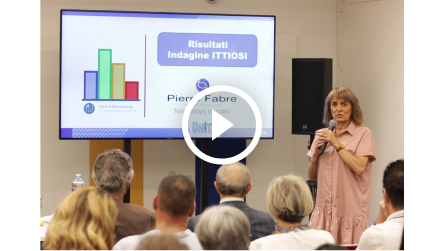
VDS Program related to the visible diseases of the skin
How better understand the patients' experience through social media listening?